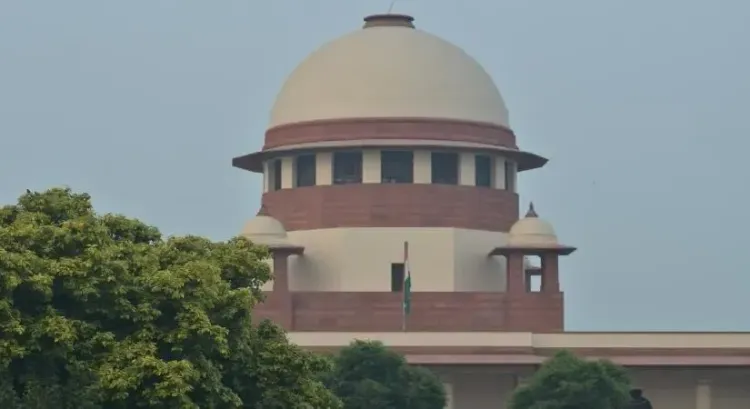Why Did the SC Shield an Advocate from Arrest in a Gangster Act Case?

Synopsis
Key Takeaways
- Supreme Court grants protection to advocate from arrest.
- Case linked to the UP Gangster Act and sale deeds from 2014.
- Allahabad High Court's previous ruling dismissed the advocate's plea.
- Legal duties as a deed writer cannot be grounds for criminal charges.
- Significant implications for legal accountability and protection.
New Delhi, June 18 (NationPress) The Supreme Court has granted protection to an advocate from being arrested in relation to a case filed against him under the UP Gangster and Anti-Social Activities (Prevention) Act, 1986.
A bench consisting of Justices Ujjal Bhuyan and Manmohan acknowledged the claims made by the petitioner, advocate Sandeep Kumar, who is accused of being the deed-writer for two sale deeds purportedly executed in 2014.
Previously, the Allahabad High Court had rejected the petitioner’s request to dismiss the FIR registered in July of the previous year under Sections 2 and 3 of the UP Gangsters Act.
The special leave petition (SLP) presented to the apex court argued that the FIR lacked any legally justifiable foundation.
"Neither the foundational FIRs nor the essential elements demonstrating a disturbance of public order to define a 'gang' under Section 2(b), nor the existence of any benefit concerning the petitioner, is evident, nor does the threshold for 'engaging in anti-social activities' fulfill the subjective satisfaction required for authorities to initiate proceedings under the Gangster Act," argued the SLP, submitted by advocate Anurag Ojha.
The SLP further noted that in both foundational FIRs, the sole allegation against the petitioner is his role as the deed writer of the contested sale deeds executed in April 2014.
According to the SLP, the Allahabad High Court had already suspended further proceedings regarding the first foundational FIR, and mandated that no coercive actions be taken against the petitioner concerning the second foundational FIR. It noted that drafting a deed is a purely professional activity that the petitioner is entitled to perform as a legal practitioner.
Moreover, it asserted that before proceedings can commence under the Gangster Act, a prima facie examination of the allegations leading to the registration of foundational FIRs and the subsequent creation of the gang chart is essential. "The petitioner has fulfilled his legal obligation in drafting the sale deed, assuming the allegations are accurate, and such actions cannot serve as a basis for initiating proceedings, let alone criminal charges," the SLP contended.





